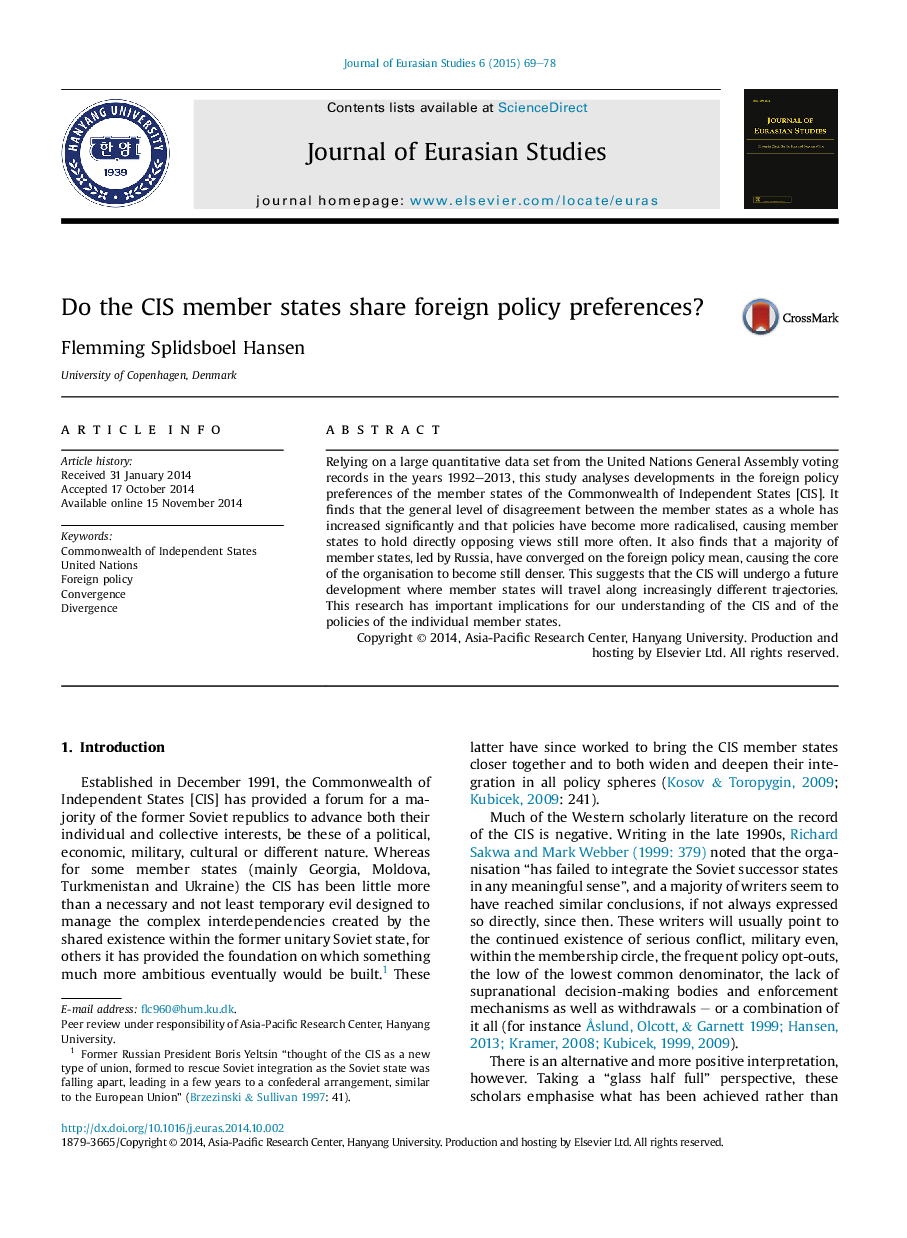| Article ID | Journal | Published Year | Pages | File Type |
|---|---|---|---|---|
| 1127236 | Journal of Eurasian Studies | 2015 | 10 Pages |
Relying on a large quantitative data set from the United Nations General Assembly voting records in the years 1992–2013, this study analyses developments in the foreign policy preferences of the member states of the Commonwealth of Independent States [CIS]. It finds that the general level of disagreement between the member states as a whole has increased significantly and that policies have become more radicalised, causing member states to hold directly opposing views still more often. It also finds that a majority of member states, led by Russia, have converged on the foreign policy mean, causing the core of the organisation to become still denser. This suggests that the CIS will undergo a future development where member states will travel along increasingly different trajectories. This research has important implications for our understanding of the CIS and of the policies of the individual member states.
